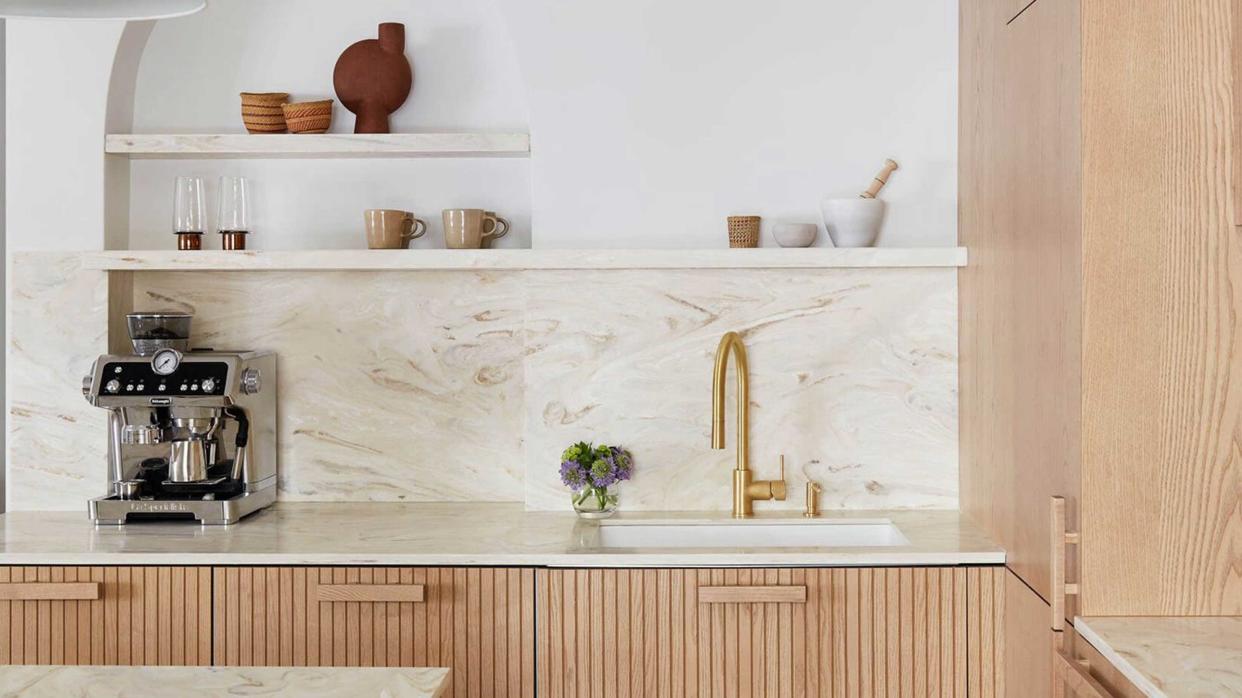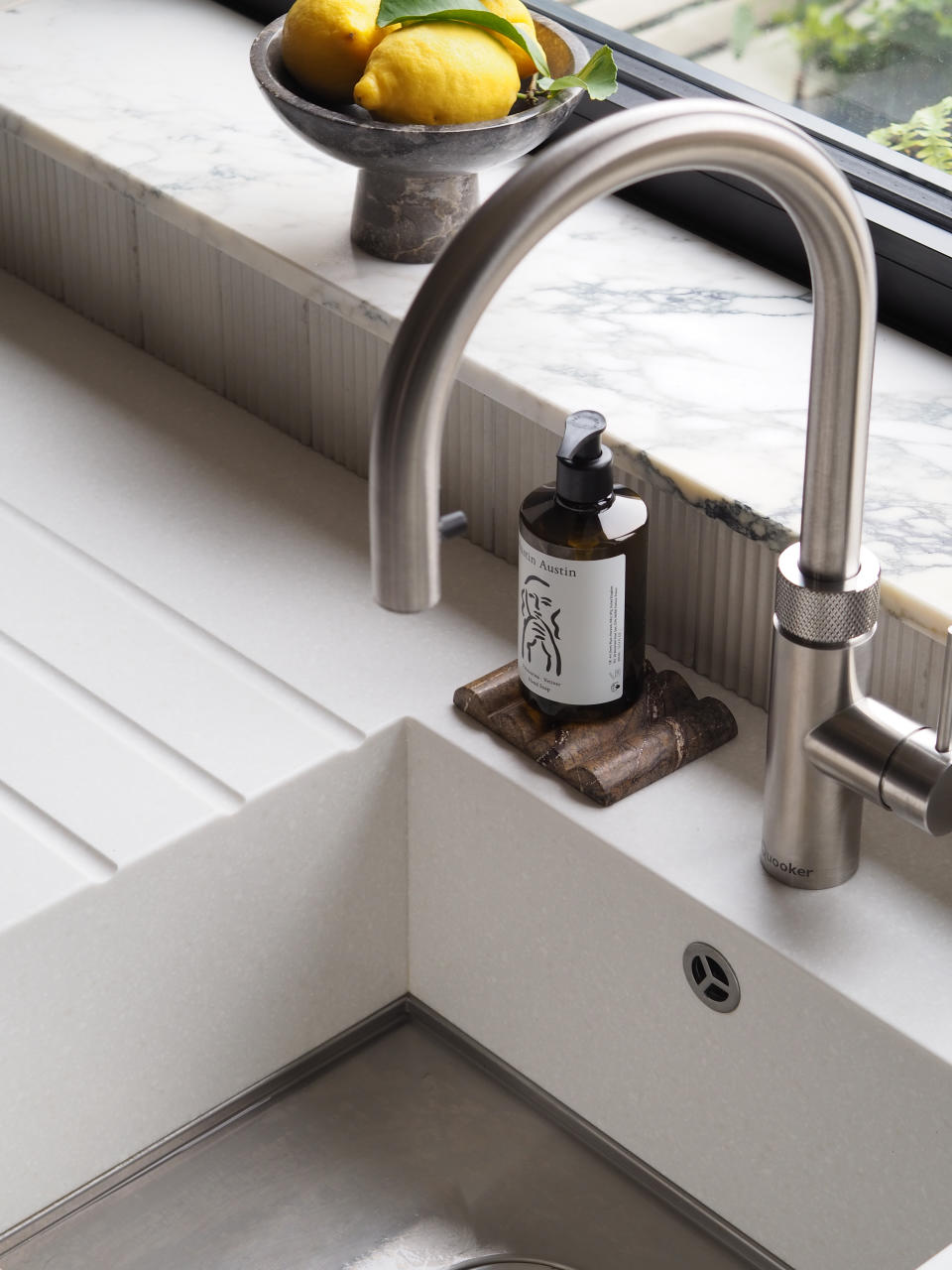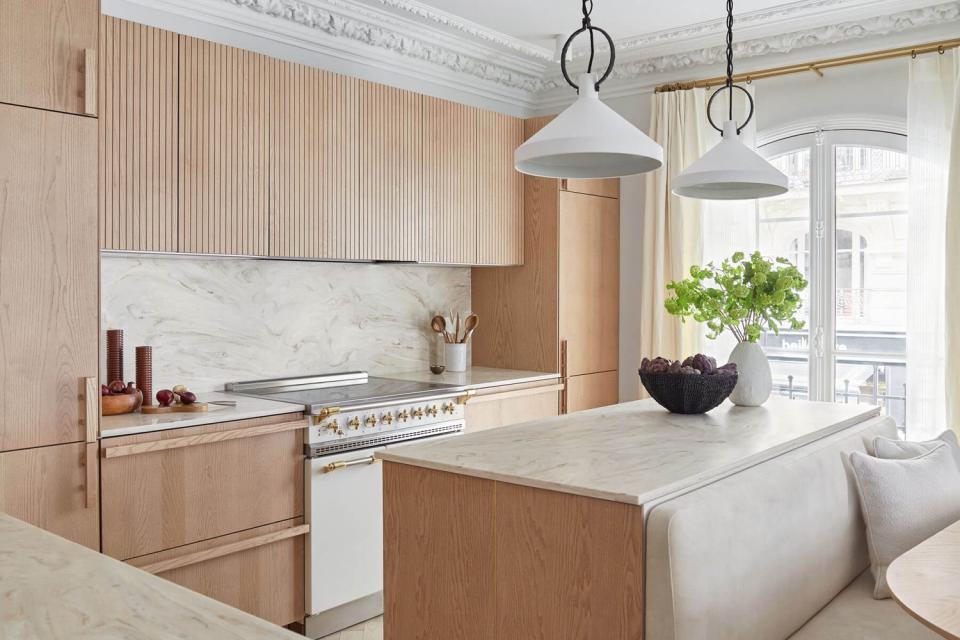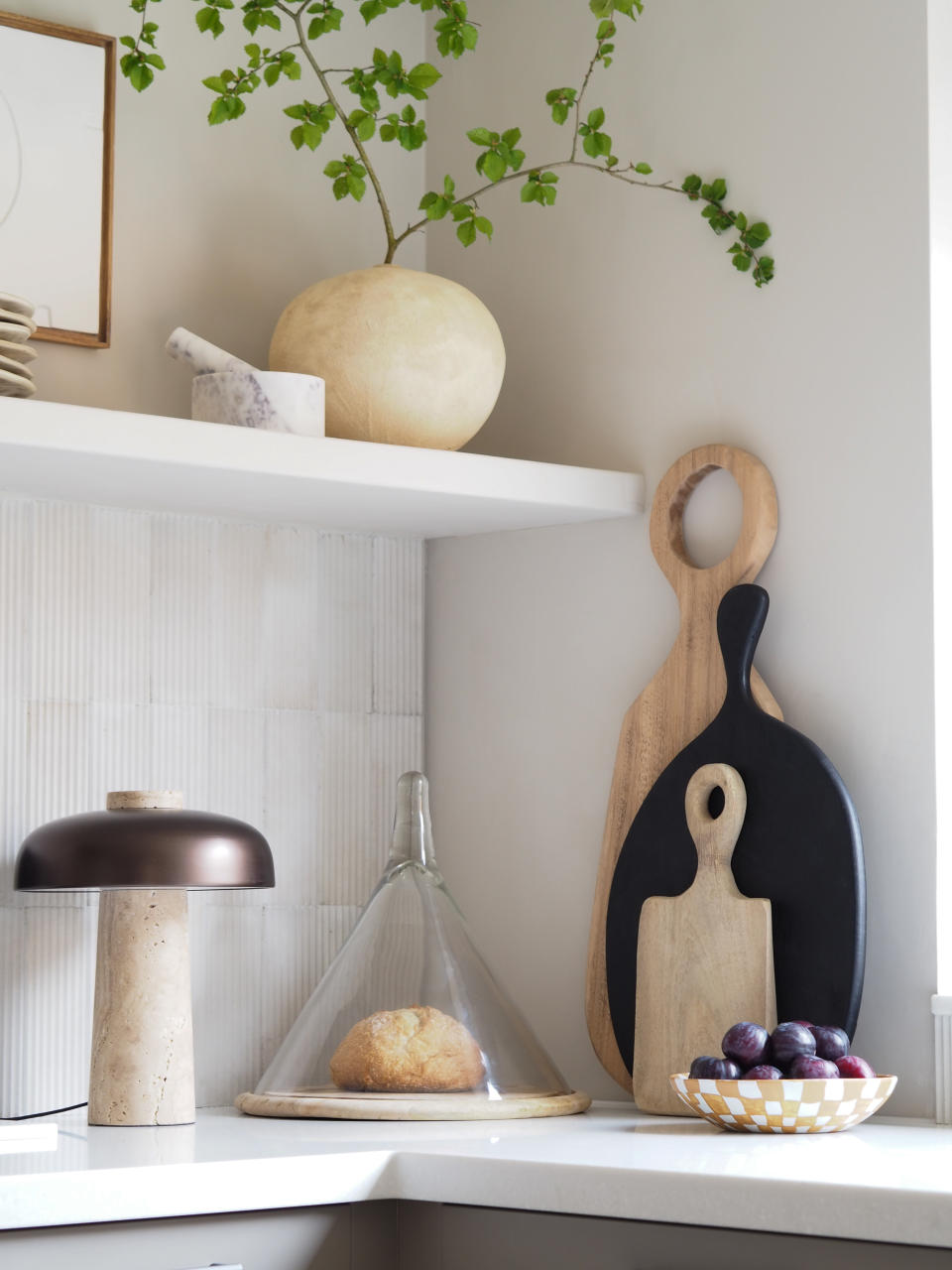5 things you need to know about Corian countertops (from someone who has them in their own kitchen)

If you're looking at natural stone-adjacent options for your kitchen countertops, there are several choices open to you. Quartz countertops are probably the most popular, but you'll also come across "solid surface" surfaces like Corian. 'Its non-porous nature and low maintenance requirements make it an ideal choice for a kitchen,' explains interior designer Lichelle Silvestry, founder of Lichelle Silvestry Interiors.
For my own kitchen remodel, I landed on Corian more by accident than design. In the showroom, it was the color and texture I was most drawn to - a simple white, but with small flecks that stopped it from feeling too flat and monotonous. I didn't know much about solid surface countertops when I chose them, but I've come to know all about their upkeep.
If you find yourself in the same boat, researching kitchen countertops for your own remodel, here's what you need to know about Corian, from someone who has them in their own kitchen - and whether I'd recommend them.
What is Corian?
Corian is actually a brand name for a particular type of countertop, but it's largely become a name that encompasses a range of solid surface countertops made by combining acrylic with naturally occurring minerals. It's not considered a natural or engineered stone, but has many of the same qualities.
1. The seams are pretty much invisible

Despite being a manmade material, there are limitations when it comes to the size of the slabs of Corian. That means that you're likely to require a seam somewhere in your kitchen. However, thankfully, once installed, these seams are virtually invisible.
This alternative countertop can also be used for the likes of inset sinks, and have draining grooves etched into it, if that's something you're interested in.
2. It's largely stain-proof, but not always
Corian is a low-maintenance kitchen countertop, non-porous and largely stands up well to stains, but it's more likely to stain from certain kitchen ingredients than a comparative Quartz countertop. If not wiped up quickly, you may see marks left by spills - I often find that spices are a major offender, as can the likes of avocado.
However, this isn't going to mean you've got a permanently-stained countertop. These stains seem to fade over time, lasting a few days (if that) - however, while they might not wipe away with a standard antibacterial kitchen spray, a tougher cleaner like Bar Keepers Friend from Amazon is effective at removing the tougher, more stubborn stains.

Bar Keepers Friend Soft Cleanser kit
Price: $24.99
Size: 13 Oz
3. You can cause "thermal shock" if you put hot things directly on it

'One consideration to take when selecting Corian is that it should not be used to cut or to place hot items,' explains interior designer Lichelle Silvestry. It's really the most important thing to know about Corian - it can chip and scratch far more easily than Quartz, and you cannot put hot objects directly on it. This can cause "thermal shock" which can cause the Corian to crack.
While Quartz can endure a hot pan on it, it's still advisable not to regardless, and to invest in a few trivets for your kitchen for when you do need a spot for pots straight off the cooktop.

Rainbow trivet
Price: $17.50
Material: Silicone
4. Damaged countertops are repairable
Corian is a little more fragile compared to Quartz, but if it does become damaged, it is possible to restore it. 'If an accident happens, it can be easily sanded away with ease, restoring the surface to its original beauty,' Lichelle explains. There are also repair kits you can find for deeper gauges and scratches that can't be sanded away.
But what happens if your Corian countertop does crack, whether from heat or some other damage? Generally, these areas can be cut out and filled with another piece of Corian - my installers left a spare piece of Corian which I keep in storage for this, just in case. The seams can then be finished just as they would be in joining two pieces of countertop. However, this is easier with countertops that don't have large patterning.
5. It's not a much cheaper option

As you can possibly tell, Corian has a few drawbacks that set it apart from Quartz. While you might find there's a small price difference, especially with more luxurious brands and finishes of Quartz, it's not necessarily the budget option for your kitchen.
Corian costs around $40-$65 per square foot while, when it comes to how much Quartz countertops costs, some surfaces start from $50 per square foot (though you'll find some Quartz surfaces over $100 per square foot, even up to $200).
When remodeling a kitchen, if the budget allows and you've not got your heart set on a particular solid surface countertop design, then Quartz generally outperforms Corian. It offers better peace of mind that you're not going to damage your countertops. However, Corian is still a relatively hardy, durable option - and if you're a careful cook and happy to maintain it, it shouldn't be overlooked.

